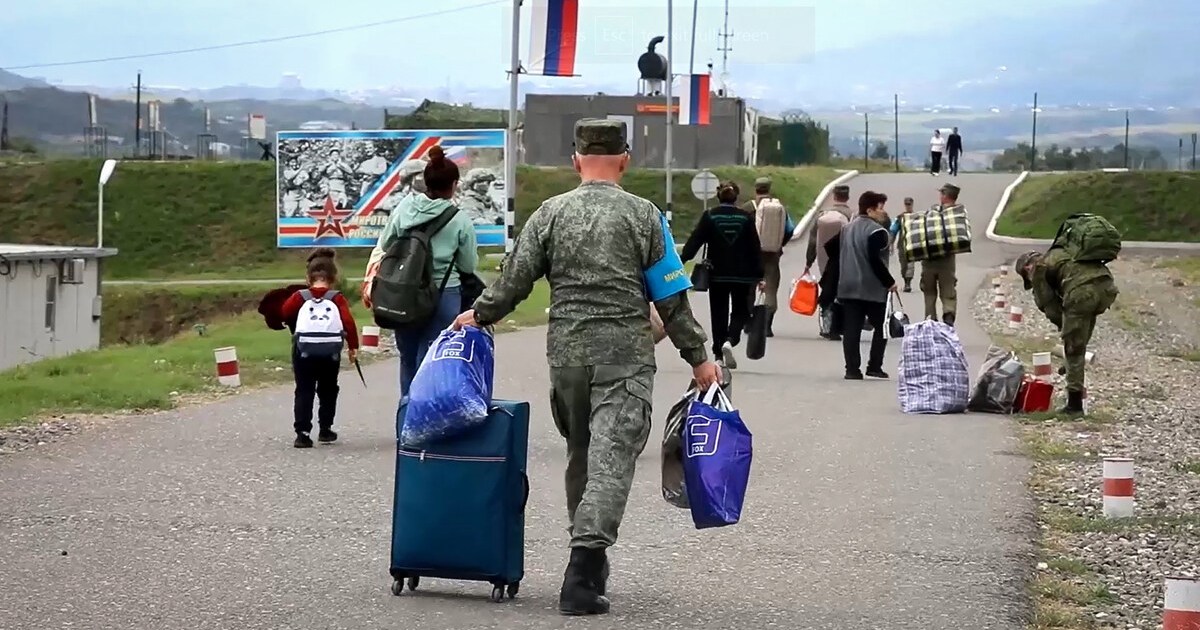Azerbaijani troops are on the edge of the separatist stronghold of Stepanakert in Azerbaijan’s Armenian-populated enclave of Nagorno-Karabakh, prompting residents to hide in basements in fear, according to a rebel envoy.
The development came on Friday, three days after Azerbaijan launched intense fire on ethnic Armenian rebel positions in what it called an “anti-terrorist operation“. It demanded they lay down their arms and the separatist government disband.
A day later, Nagorno-Karabakh authorities agreed to the military demands, but talks on how the region will be reintegrated into Azerbaijan have not reached a final agreement.
“The situation in Stepanakert is horrible. Azerbaijani troops are all around the city. They are on the outskirts, and people fear Azerbaijani soldiers could enter the city at any moment and start killings,” separatist spokeswoman Armine Hayrapetyan told the Agence France-Presse news agency on Friday.
Hayrapetyan, who represents the separatist government’s information centre in Armenia’s capital, Yerevan, said Stepanakert and other parts of Nagorno-Karabakh have lost most basic services since Baku’s offensive on Tuesday to recapture the enclave populated mainly by ethnic Armenians.
“No electricity, no gas, no food, no fuel, no internet and telephone connection,” Hayrapetyan said. “People are hiding in basements.”

Armenian separatists agreed to lay down their arms in the face of clashes that they said killed 200 people.
“We have so many casualties, dead and wounded people,” Hayrapetyan said without providing details.
Humanitarian aid
Meanwhile, Azerbaijan said it was delivering food and other humanitarian aid to Nagorno-Karabakh’s 120,000 people on Friday.
Azerbaijan’s Ministry of Emergency Situations said two 20-tonne trucks with food and hygiene products as well as two trucks with bread were dispatched to Nagorno-Karabakh on Friday, travelling on the road from Aghdam, which lies east of the region.
Supplies for Nagorno-Karabakh previously had come from Armenia to the west.
Armenian Prime Minister Nikol Pashinyan on Friday said at a government meeting that there was no immediate need for the region’s ethnic Armenians to leave their homes but said Armenia is prepared to receive as many as 40,000 evacuees if needed.
Jeyhun Bayramov, Azerbaijan’s foreign minister, said at the United Nations on Thursday that his country is determined to guarantee Nagorno-Karabakh residents “all rights and freedoms” in line with the country’s constitution and international human rights obligations, including safeguards for ethnic minorities.
Talks with Nagorno-Karabakh in the Azerbaijani city of Yevlakh will continue, he said.

In Armenia, anti-government demonstrators took to the streets of Yerevan on Friday for a third day to protest the government’s handling of the crisis in Nagorno-Karabakh.
Opposition parties accused Pashinyan of making too many concessions to Baku and demanded his resignation.
Small groups of protesters blocked streets across the Armenian capital, promising to hamper the holding of Pashinyan’s cabinet meeting scheduled later on Friday.
Police detained opposition politician Andranik Tevanyan, one of the protest organisers.
Pashinyan said on Thursday that his government “will be acting firmly but in line with law” against the protesters.
“My appeal, the government’s appeal, remains the same: Remain calm and don’t cross the limits of law in this emotional and difficult time,” he said in a televised address.
Nagorno-Karabakh had been under Armenian separatists’ control since a 1990s war between the Caucasus arch-foes.
But in 2020, Baku launched a six-week war, which ended in a Russian-brokered ceasefire that saw Armenia cede swathes of territories it had controlled for three decades.
The deal was seen in Armenia as a national humiliation, which opposition parties blamed on Pashinyan’s mishandling of the war.
